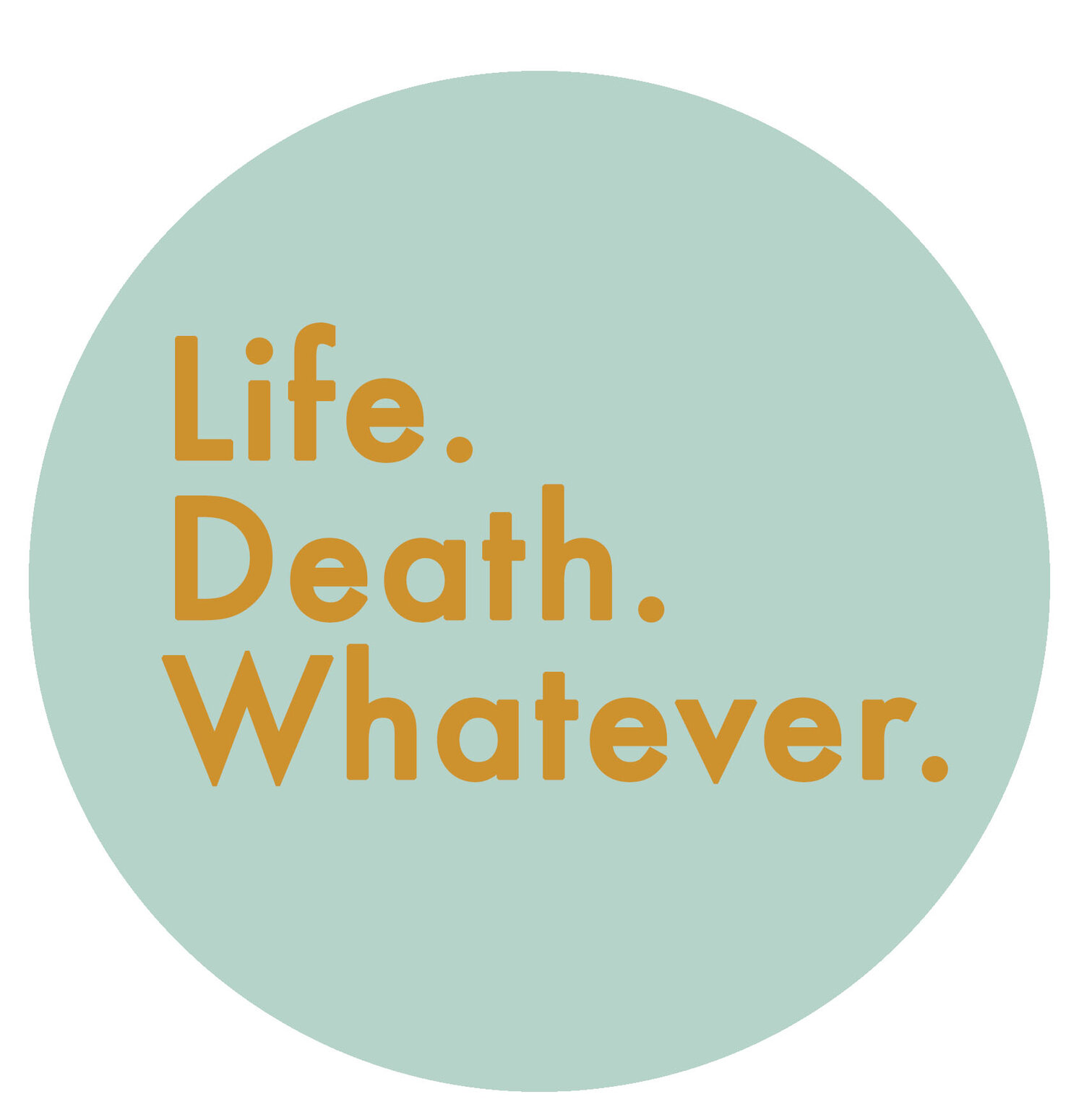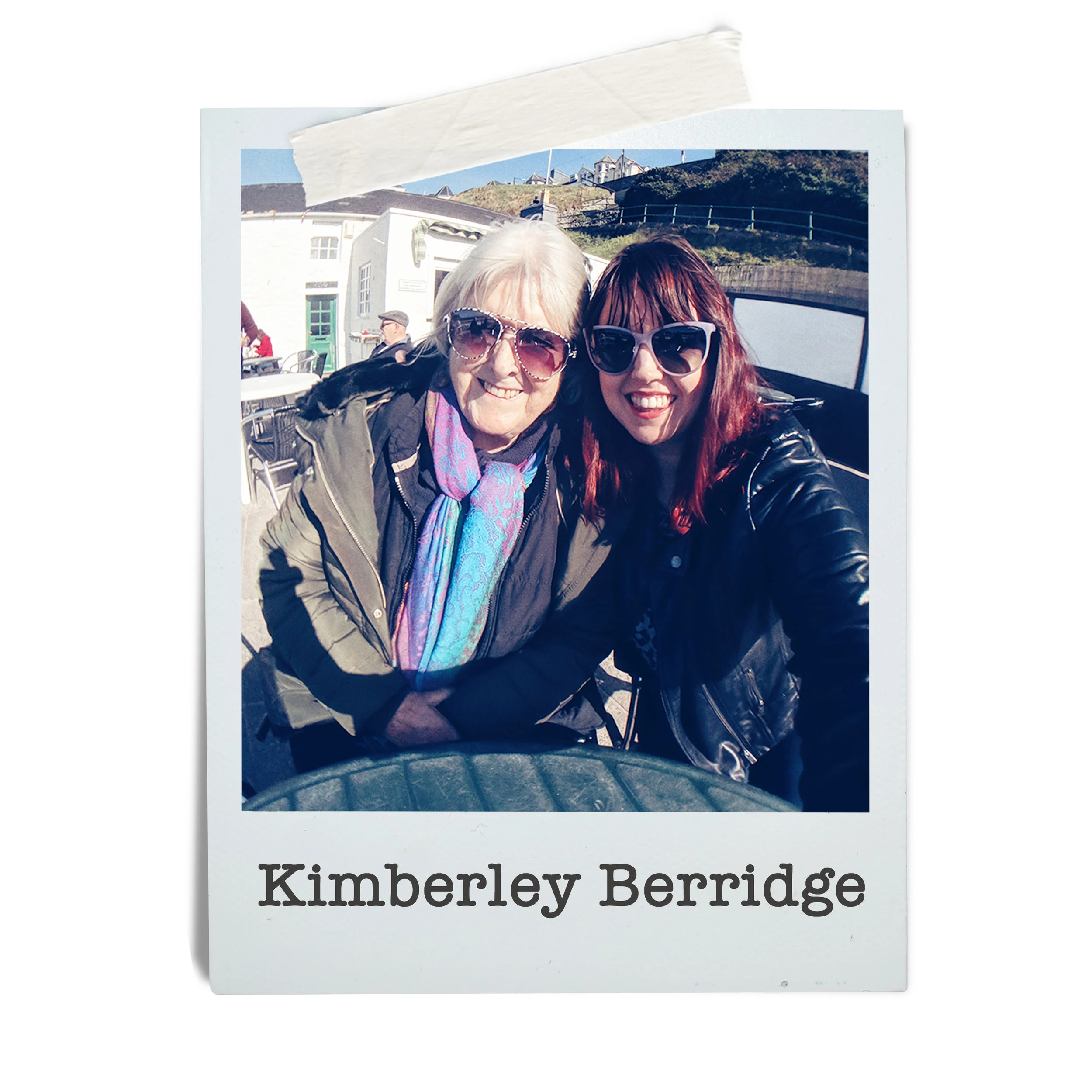By Kimberley Berridge whose Mum died abruptly in July 2019 at the age of 76
1. We don’t talk about death enough
Death is scary. Talking about it makes you question your own mortality as well as those you love. We don’t want to bring it up for fear of upset - upsetting ourselves and upsetting our loved ones.
Once death occurs, we spend time going over thousands of conversations in our head. Things we said, things we wish we had said or asked.
If death was an open discussion, we could potentially avoid some of the upset.
My Mum’s career was to support people with, or those devastated by cancer. So in our household, death was something we spoke about. We knew that my Mum hated the term “passed away”, so to her wishes, we all say the sometimes brutal word “died” when speaking of her now.
My Mum had even written her own funeral plan. She wrote it in 2001 when she had cancer, which she survived. This made the process a little easier for us as we knew we were meeting her wishes. But still, despite my Mum professionally knowing how to cope with death, I never spoke to my Mum about how to cope with her death.
Before the funeral I was desperately scouring the internet with advice on how to cope at your mother’s funeral, I couldn’t find a single thing. Lots of information on how to book a funeral, just nothing around the horrendousness of actually attending your mother’s.
I did cope in the end, as I prepared myself fully and also had a small mental toolkit for when I was there. I have written about this here for others who need the support.
2. You join a quiet club no one wants to be in
Death bonds people. Through the darkness and pain, there are other people who can identify with how you feel. They may be in the form of an old classmate, or a manager at work. Bereaved people walk among us and more often than not, they want to talk to you about it.
Grief is different for everyone and we all handle it in our own ways. Yet there are lots of feelings and experiences that we all have in common and talking about them is a great healer, you will see that you are not alone.
3. You look back on how you were during other bereavements
I was the girl who sent well thought out, well spaced text messages, cards and occasional flowers. But I kept away and kept relatively quiet, for fear of encroaching on their grief. This is something I regret now, knowing what I know. People need you. They need acknowledgement of their pain and they need your time.
To give the right amount of time varies from person to person. But follow the grieving person’s lead, be a little text message or a short phone call, to sitting together in silence or to talking about silly escapades amongst peers. Your time is the most precious gift you can give or receive.
4. People will surprise you – the silence and the kindness
One of the biggest things I have struggled with is the quietness of people. I would make an educated guess that this comes from not having conversations about death. In general, we don’t know how to respond when people die. We know it hurts, we know people cry when it happens. But that can be all we know about our peers and death, because we haven’t spoken about it.
I have found people don’t want to mention my Mum, perhaps there is a fear of me exploding with emotion. Ironically, all I want to do is speak her name, and I do whenever I can and with a smile. The silence can feel like they are ignoring my pain. They aren’t, they just don’t know what to say or do, much like I was with other people’s grief, before I joined the ‘club’. They also have their own busy lives going on.
On the flip side of that, since my mum died, I have had some of the most beautiful and fulfilling conversations with people. I have had people share poems, words of comfort, funny anecdotes, and shocking revelations. Many of these expressions of support and empathy have come from people that I haven’t really spoken to before or have only recently crossed paths with. An old school friend told me to remember that my Mum’s blood pumps through my veins. That has given me endless comfort and warmth.
5. Signs
The thing that keeps me going, through the darkest of days is seeing signs (this is where Ace of Base ‘The Sign’ pops into your head).
Since Mum has died, I see her and feel her every single day.
Things like a white feather landing in front of me, my phone or speakers not working, the influx of butterflies the week she died or the smell of her perfume in the strangest of places.
If you believe these signs are just coincidence or if they are actually her, it doesn’t really matter. All I know is that they remind me of my Mum and it makes me smile and think of her every time.
About Kimberley Berridge
Kimberley’s mum, Eve Berridge, died having suffered a perforated duodenal stomach ulcer on 25th July 2019, aged 76 years.
Her mum dedicated her life to helping people with cancer as well as their families, throughout illness and during grief. She, along with her sister, founded a charity called Manx Cancer Help. Ironically, she had cancer herself in 2001, but she survived. In 2005, she dedicated her retirement to looking after her grandchildren, Kimberley’s nieces, with her husband. She leaves behind a loving husband, two daughters and two granddaughters who miss her dearly.
Kimberley has found that writing about her grief has been cathartic and is looking to encourage more open conversations around death with her peers and in her community.
Kimberley works as an Experience Manager and lives in the Isle of Man.



